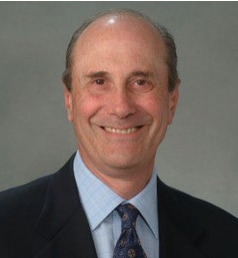The basic qualities of emotional intelligence best described by Daniel Goleman, expounded on in his book Primal Leadership: Unleashing the Power of Emotional Intelligence,6 are an essential part of an individual’s success as both a team leader and in positions of greater responsibility. The principles of self-management, self- awareness, social awareness, and relationship management he describes are essential to being effective as a team leader, which is a requirement of all physicians. Leaders at the organizational level must exhibit these principles to be successful as well. Organizations like the Mayo Clinic7 with its large group practice model recognizes the importance of emotional intelligence and reinforces the development of these behaviors with physicians starting with the onboarding process and continuing with the development of point-of-care leaders. A further validation of this approach is described by Adam Grant from the Wharton School in his book Give and Take: Why Helping Others Drives Our Success,8 which emphasizes that givers tend to be more successful than takers in organizations. Being a giver is a quality that is embedded in the principles of emotional intelligence and in the tenets of servant leadership as describes by Robert Greenleaf 9 where a culture of trust is imbued with unselfish behavior. It is not enough to deliver excellent care, there must be a broader sense of how best to interact with individuals within an organization.
This can be further expanded by the reciprocal interactions and expectations between a senior leader of the organization and the individual physician. Larry Bossidy in his Harvard Business Review article “What Your Leader Expects of You and What You Should Expect in Return”10 goes through a list of expectations that could also be categorized as a part of organizational citizenship behavior as first described by Dennis Organ.1 They both emphasize all the positive and constructive employee actions and behaviors that aren’t part of their formal job description. It is anything that employees do, out of their own free will, that supports their colleagues and benefits the organization as a whole. Bossidy mentions in part that individuals should stay current, drive their own growth, get involved, generate ideas, collaborate, lead initiatives, and be a player for all season. In other words, when things may not be going well, stay in the game. At the same time, individuals should expect their leaders to provide clarity and direction, set goals, give frequent feedback, be accessible, be honest, and provide fair compensation. Dennis Organ describes in detail why the citizenship behaviors of altruism, courtesy, sportsmanship, conscientiousness, and civic virtue are important for being a positive contributor to both organizational and individual success.
These reciprocal expectations of leaders and the people in their organization should be a fundamental element in the organization’s culture. If they are not part of the culture and the physician compact, then the business will not succeed and the mission will not be served.

